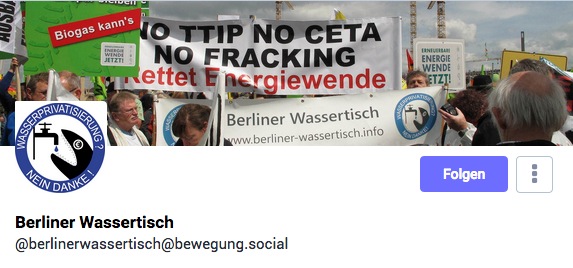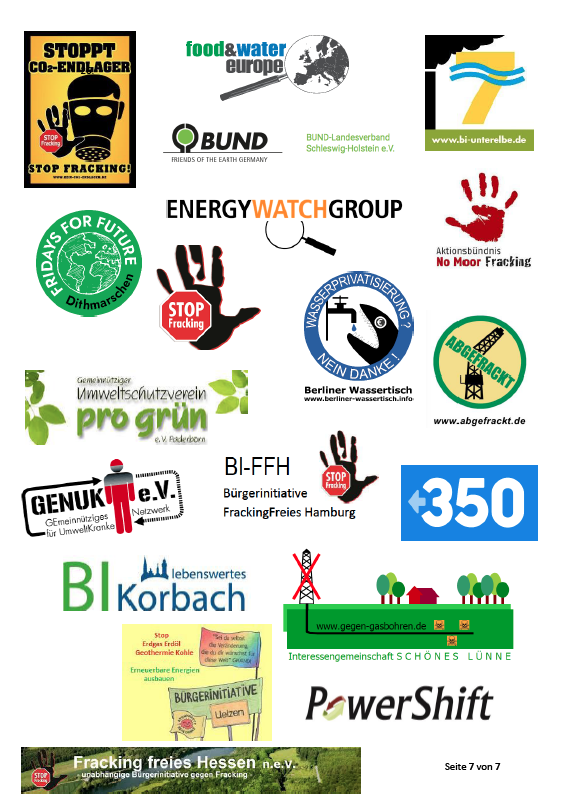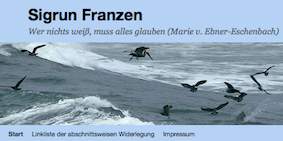Privatsphäre stärkt, Überwachung schwächt! #StopScanningMe


Suche

Schiefergas-Fracking in Deutschland?
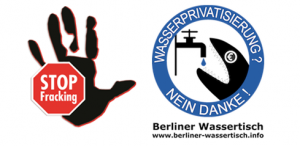
#StopEUMercosur Erklärung
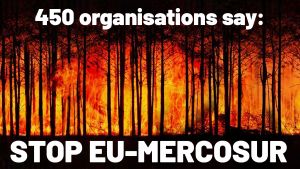
Aktion Greenpeace: #StopEUMercosur

#SaveTheOkavangoDelta
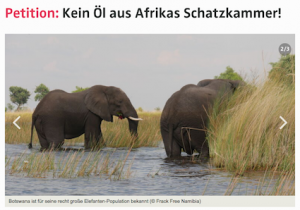
Erfolgreich! Über 1 Million Unterschriften „Green Deal“ – Europäische Bürgerinitiative (EBI)

Stop Energiecharta. #NoECT. Wir wollen raus aus dem Anti-Klimaschutz-Vertrag
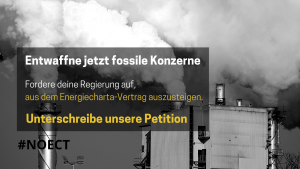
Europäische Bürgerinitiative gegen biometrische Massenüberwachung (17.2.2021-17.2.2022)
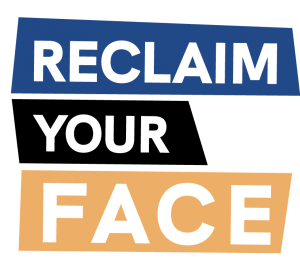
Lebensgefährliche Entwicklung: Gewinnorientierung im Krankenhaus
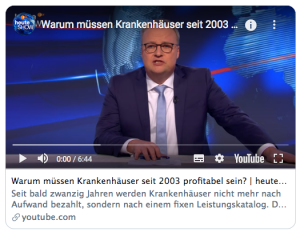
- Wassertisch-Plenum,
im NewYorck / Bethanien Mariannenplatz 2A
10997 Berlin Openstreetmap fällt coronabedingt aus Überblick (Messstellen: Oberflächengewässer und Grundwasser)

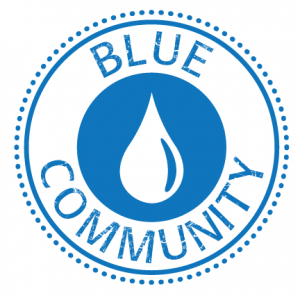
-
Letzte Beiträge
- AöW zum Weltwassertag 2023: Interkommunale Zusammenarbeit noch stärker ermöglichen
- Greenpeace: Fracking – eine unterirdisch schlechte Idee
- Bürgerinitiative gegen CO2-Endlager: Offener Brief an den Bundesminister für Wirtschaft und Klimaschutz Dr. Robert Habeck
- BUND gegen CCS-Endlager
- Jürgen Knirsch: CETA-Handelsabkommen: Eine trügerische Wette auf die Zukunft (Leserbrief an die SZ vom 8.12.2022)
- Neuere Materialien und Dokumente zur CETA-Debatte
- TAZ: Hamburger Abgeordneter über Olympia-Gedankenspiele: „Es kommt zu Vertreibungen“
- NDR: Bewirbt sich Hamburg noch einmal um Olympische Spiele?
- NGO-Bündnis fordert mit gemeinsamen Appell die Senkung des absoluten Ressourcenverbrauchs
- Allianz der öffentlichen Wasserwirtschaft warnt vor CETA: Mit dem jetzigen CETA-Text wird der Schutz der öffentlichen Wasserwirtschaft vor einer Kommerzialisierung weiter geschwächt
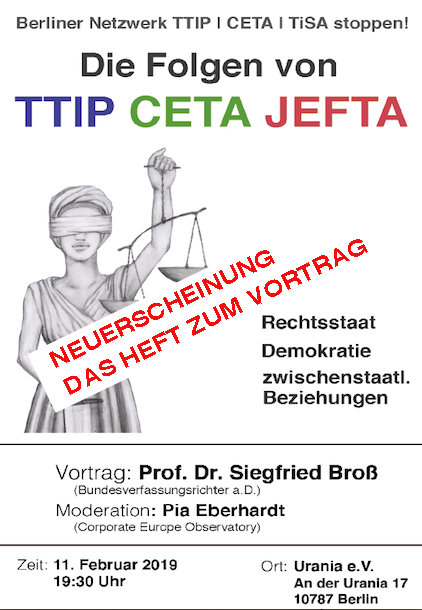
Delius-Klage
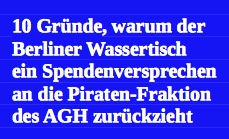
Keine Steuergelder für LNG-Fracking-Gas Terminals in Deutschland!
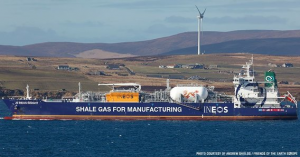
RSS-Feeds
Schlagwort-Archive: Copyright
TPP Leak zeigt: ISDS wird so schlimm wie befürchtet
Heise
27.3.2015
Handelsabkommen TPP: Schiedsgerichte gegen Copyright-Schranken
Von Stefan Krempl
Wikileaks hat das geheime Kapitel* zu privaten Schiedsgerichten für den Investorenschutz (ISDS) im geplanten Handelsabkommen Trans-Pacific Partnership (TPP) veröffentlicht. Es bestätigt die Befürchtungen der Kritiker.
Das umstrittene Kapitel für ein Schiedsverfahren zum Investorenschutz (ISDS) im geplanten Handelsabkommen Trans-Pacific Partnership sollte eigentlich auch nach Abschluss des Abkommens geheim bleiben. Doch jetzt hat Wikileaks den 55-seitigen Entwurf mit Stand Januar veröffentlicht. Das Papier untermauert Bedenken, dass Konzerne über ein privates Schiedsgericht auch gegen Regeln im Patent- oder Urheberrecht der angeschlossenen Staaten vorgehen könnten.
Zum Artikel
*Zum Originaldokument: Trans-Pacific Partnership Agreement (TPP) – Investment chapter
Wikileaks
25.3.2015
„Secret Trans-Pacific Partnership Agreement (TPP) – Investment Chapter“.
WikiLeaks releases today the „Investment Chapter“ from the secret negotiations of the TPP (Trans-Pacific Partnership) agreement. The document adds to the previous WikiLeaks publications of the chapters for Intellectual Property Rights (November 2013) and the Environment (January 2014).
The TPP Investment Chapter, published today, is dated 20 J anuary 2015. The document is classified and supposed to be kept secret for four years after the entry into force of the TPP agreement or, if no agreement is reached, for four years from the close of the negotiations.
anuary 2015. The document is classified and supposed to be kept secret for four years after the entry into force of the TPP agreement or, if no agreement is reached, for four years from the close of the negotiations.
Julian Assange, WikiLeaks editor said: „The TPP has developed in secret an unaccountable supranational court for multinationals to sue states. This system is a challenge to parliamentary and judicial sovereignty. Similar tribunals have already been shown to chill the adoption of sane environmental protection, public health and public transport policies.“
Current TPP negotiation member states are the United States, Japan, Mexico, Canada, Australia, Malaysia, Chile, Singapore, Peru, Vietnam, New Zealand and Brunei. The TPP is the largest economic treaty in history, including countries that represent more than 40 per cent of the world´s GDP.
The Investment Chapter highlights the intent of the TPP negotiating parties, led by the United States, to increase the power of global corporations by creating a supra-national court, or tribunal, where foreign firms can „sue“ states and obtain taxpayer compensation for „expected future profits“. These investor-state dispute settlement (ISDS) tribunals are designed to overrule the national court systems. ISDS tribunals introduce a mechanism by which multinational corporations can force governments to pay compensation if the tribunal states that a country’s laws or policies affect the company’s claimed future profits. In return, states hope that multinationals will invest more. Similar mechanisms have already been used. For example, US tobacco company Phillip Morris used one such tribunal to sue Australia (June 2011 – ongoing) for mandating plain packaging of tobacco products on public health grounds; and by the oil giant Chevron against Ecuador in an attempt to evade a multi-billion-dollar compensation ruling for polluting the environment. The threat of future lawsuits chilled environmental and other legislation in Canada after it was sued by pesticide companies in 2008/9. ISDS tribunals are often held in secret, have no appeal mechanism, do not subordinate themselves to human rights laws or the public interest, and have few means by which other affected parties can make representations.
The TPP negotiations have been ongoing in secrecy for five years and are now in their final stages. In the United States the Obama administration plans to „fast-track“ the treaty through Congress without the ability of elected officials to discuss or vote on individual measures. This has met growing opposition as a result of increased public scrutiny following WikiLeaks‘ earlier releases of documents from the negotiations.
The TPP is set to be the forerunner to an equally secret agreement between the US and EU, the TTIP (Transatlantic Trade and Investment Partnership).
Negotiations for the TTIP were initiated by the Obama administration in January 2013. Combined, the TPP and TTIP will cover more than 60 per cent of global GDP. The third treaty of the same kind, also negotiated in secrecy is TISA, on trade in services, including the financial and health sectors. It covers 50 countries, including the US and all EU countries. WikiLeaks released the secret draft text of the TISA’s financial annex in June 2014.
All these agreements on so-called “free trade” are negotiated outside the World Trade Organization’s (WTO) framework. Conspicuously absent from the countries involved in these agreements are the BRICs countries of Brazil, Russia, India and China. Zum Artikel

 Pressemitteilungen
Pressemitteilungen